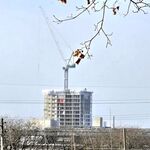unimaginative2
Senior Member
PANHANDLING
City wants to examine impact of beggars
JENNIFER LEWINGTON
CITY HALL BUREAU CHIEF
May 28, 2007
A two-month pilot project to assess the needs of downtown panhandlers - and their impact on tourism - is set for debate today at Toronto city council's executive committee.
The fact-finding approach, with no policy changes until 2008 at the earliest, contrasts with calls by some for an outright ban on aggressive panhandling in the tourist-rich downtown.
Under the proposal, city staff would work with "passive" panhandlers (who simply hold up a cup for spare change) to identify their income and health issues as a way to coax them off the street.
As well, the city would also work with businesses in the entertainment district and others to quantify the negative financial impact of panhandlers.
City officials would also meet with the members of the Toronto Police to assess their experience in enforcing the province's Safe Streets Act, which targets "aggressive" panhandling.
If approved, the pilot project would be carried out between July 3 to Sept 17 in the downtown area bounded by Spadina Avenue, Dundas Street, Jarvis Street and Queens Quay.
A report on the findings would be due in the spring of 2008.
Councillor Case Ootes (Ward 29 Toronto-Danforth) is among those who have called for an outright ban on aggressive panhandlers downtown.
But city officials, in a report for today's debate, cite legal and other restrictions that limit a clear-cut prohibition.
The federal Charter of Rights and Freedoms protects begging as a form of freedom of expression.
"It would appear that broad restrictions on panhandling based on time and location are unlikely to be upheld," the report concludes.
As a safeguard against a legal challenge to a crackdown on panhandling, the city would have to prove negative economic and social impact. That's why the proposed pilot project would ask businesses for specific evidence that beggars drive away customers.
An anti-panhandling bylaw in Vancouver, upheld by the courts, focuses only on aggressive beggars who obstruct a passerby on the street.
City wants to examine impact of beggars
JENNIFER LEWINGTON
CITY HALL BUREAU CHIEF
May 28, 2007
A two-month pilot project to assess the needs of downtown panhandlers - and their impact on tourism - is set for debate today at Toronto city council's executive committee.
The fact-finding approach, with no policy changes until 2008 at the earliest, contrasts with calls by some for an outright ban on aggressive panhandling in the tourist-rich downtown.
Under the proposal, city staff would work with "passive" panhandlers (who simply hold up a cup for spare change) to identify their income and health issues as a way to coax them off the street.
As well, the city would also work with businesses in the entertainment district and others to quantify the negative financial impact of panhandlers.
City officials would also meet with the members of the Toronto Police to assess their experience in enforcing the province's Safe Streets Act, which targets "aggressive" panhandling.
If approved, the pilot project would be carried out between July 3 to Sept 17 in the downtown area bounded by Spadina Avenue, Dundas Street, Jarvis Street and Queens Quay.
A report on the findings would be due in the spring of 2008.
Councillor Case Ootes (Ward 29 Toronto-Danforth) is among those who have called for an outright ban on aggressive panhandlers downtown.
But city officials, in a report for today's debate, cite legal and other restrictions that limit a clear-cut prohibition.
The federal Charter of Rights and Freedoms protects begging as a form of freedom of expression.
"It would appear that broad restrictions on panhandling based on time and location are unlikely to be upheld," the report concludes.
As a safeguard against a legal challenge to a crackdown on panhandling, the city would have to prove negative economic and social impact. That's why the proposed pilot project would ask businesses for specific evidence that beggars drive away customers.
An anti-panhandling bylaw in Vancouver, upheld by the courts, focuses only on aggressive beggars who obstruct a passerby on the street.




